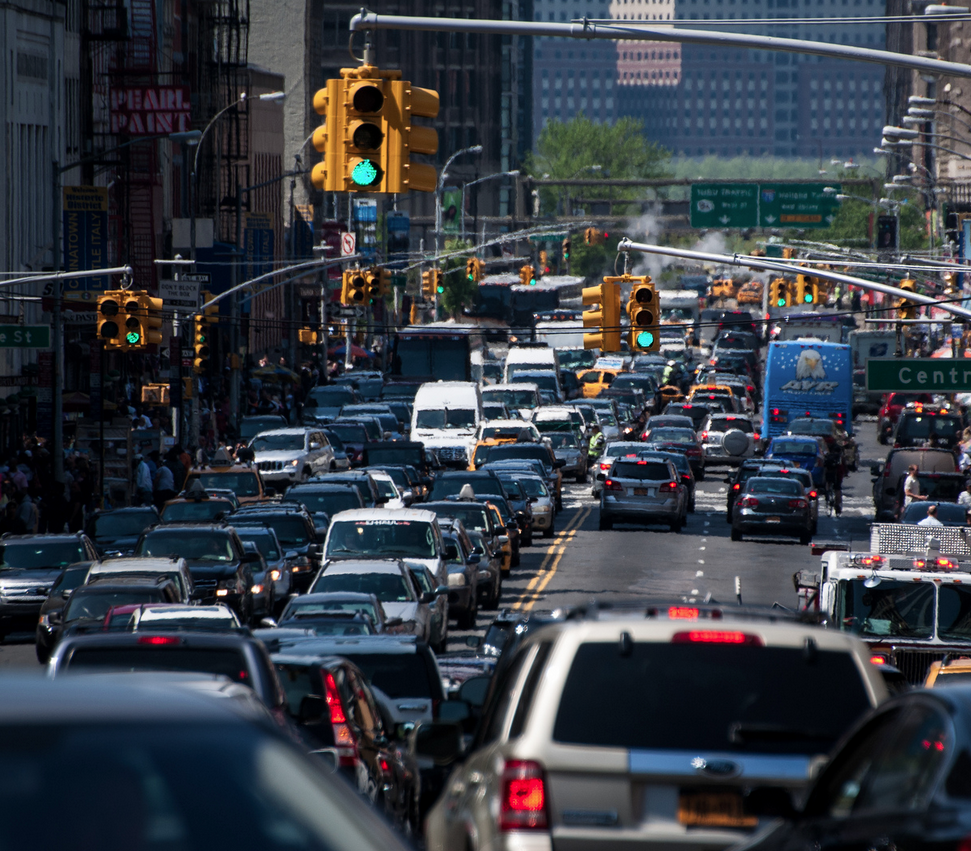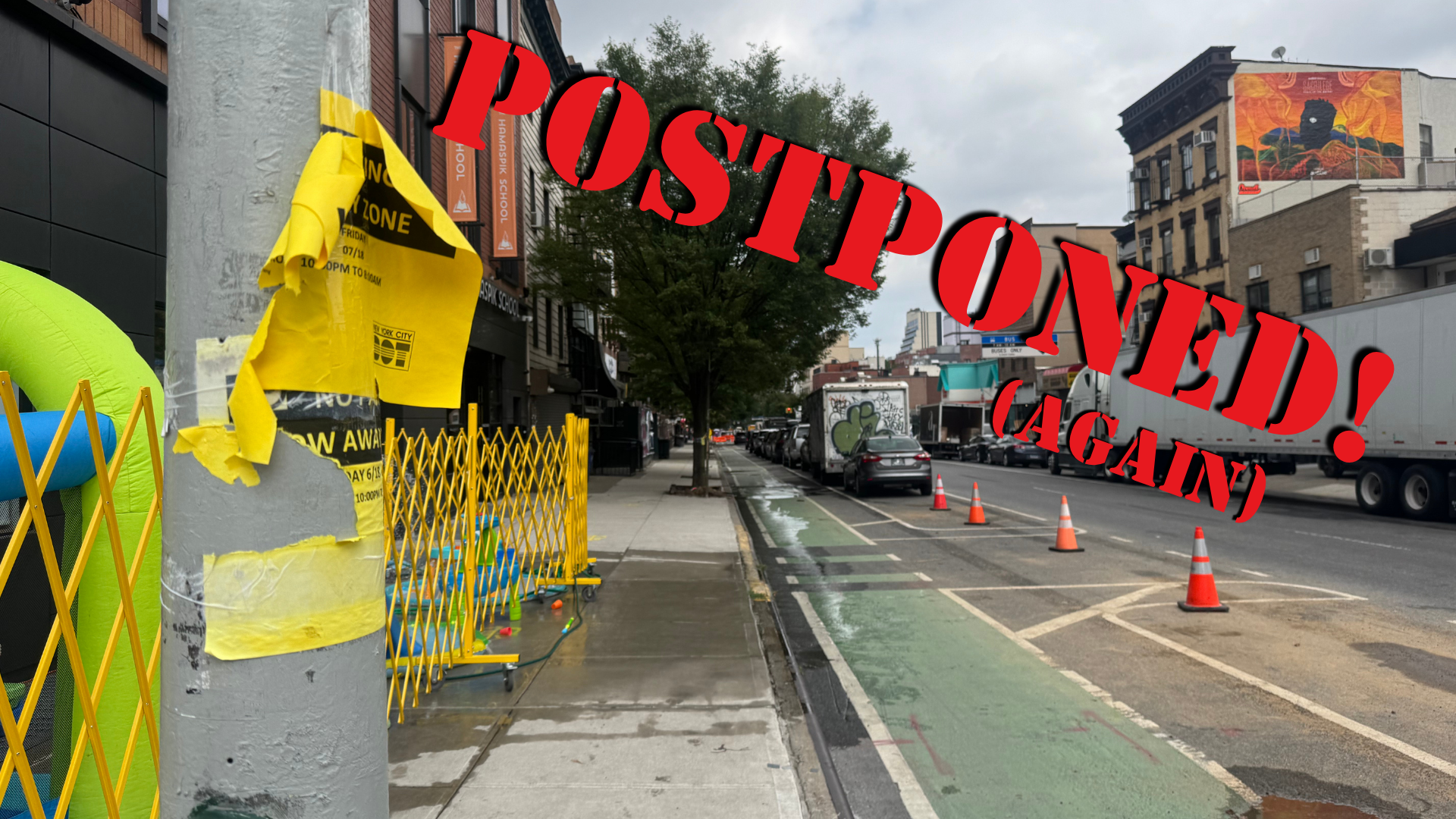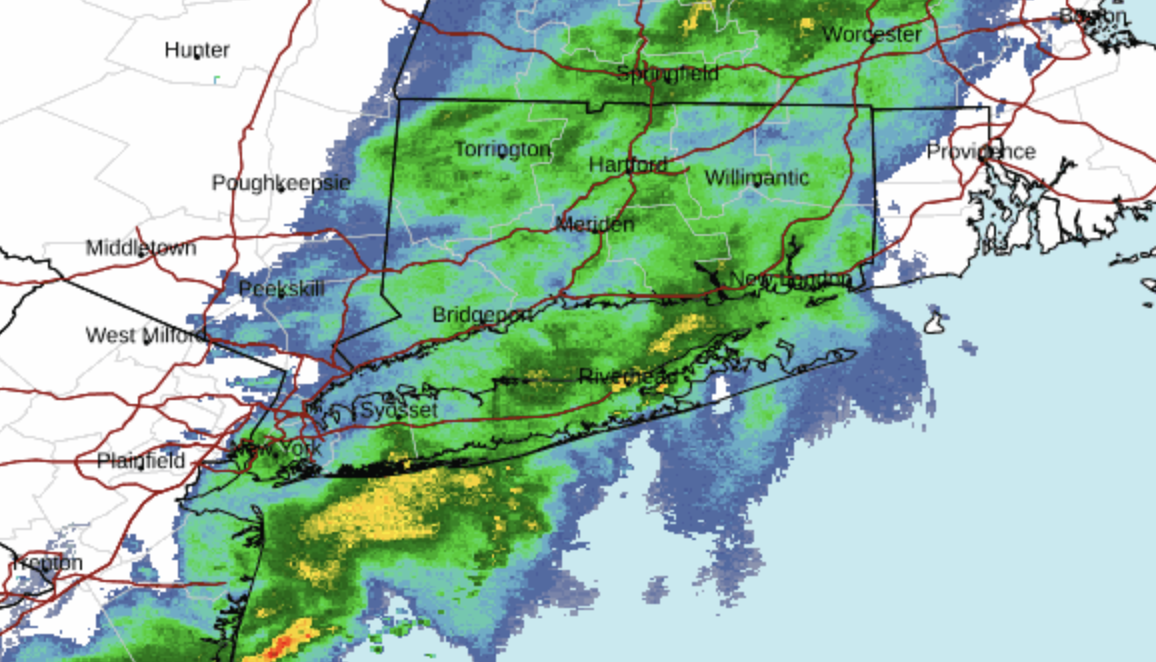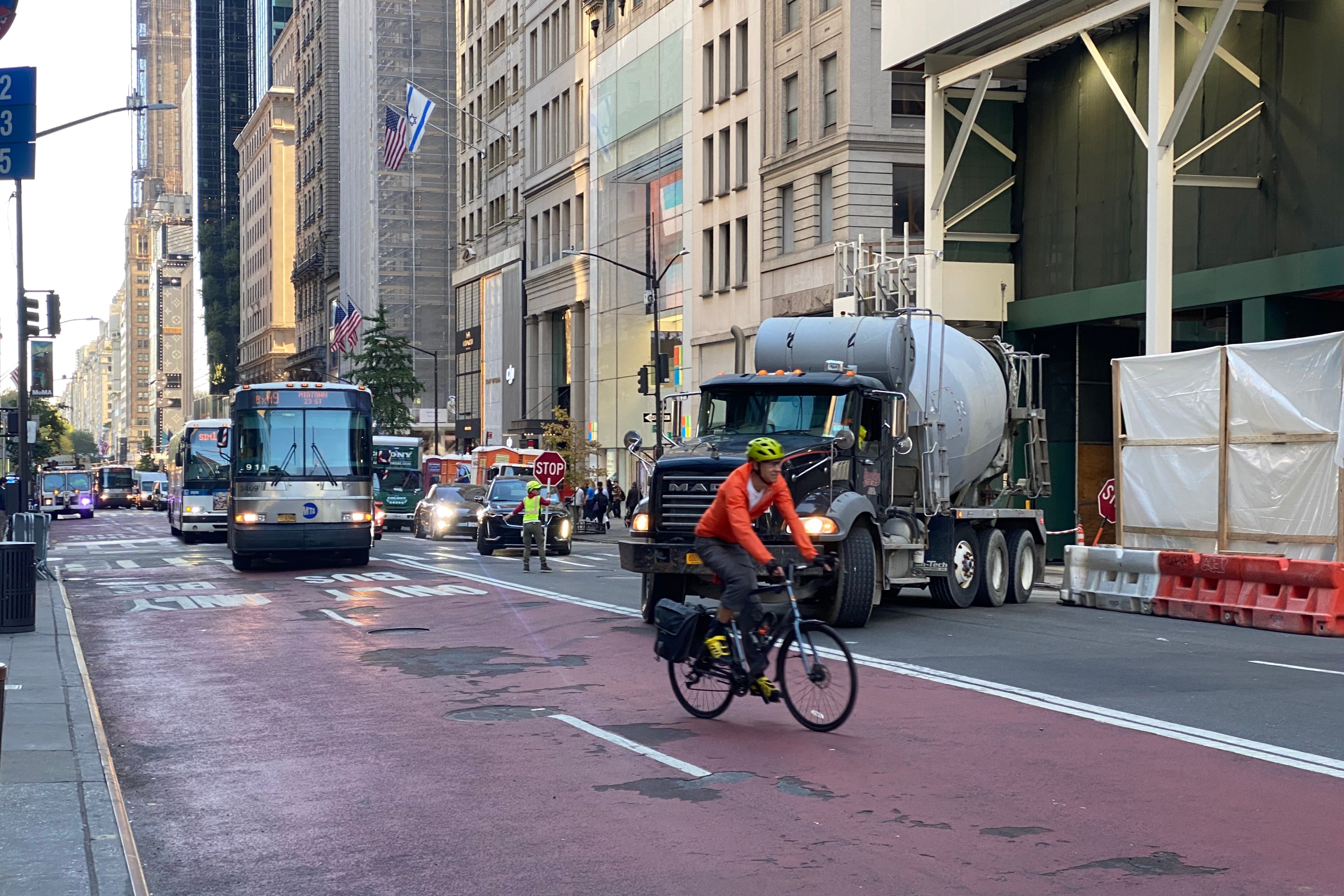As expected, the City Council today approved a package of bills to give the Taxi and Limousine Commission more authority over Uber and Lyft. Mayor de Blasio says he'll sign the bills.
The 12-month freeze on Uber and Lyft licenses grabbed most of the headlines, but two other features of the legislation are more promising as levers to manage Uber and Lyft traffic and improve working conditions in the industry.
Under Intro 144, sponsored by Steve Levin, the TLC can set “vehicle utilization standards” for Uber and Lyft fleets in specific areas of the city. The idea is to reduce how much Uber and Lyft drivers travel in between picking up fares. This unoccupied time accounts for 40 percent of their travel in the Manhattan core. With its new authority, TLC could require Uber and Lyft to reduce unoccupied time in the Manhattan core to 20 percent, for instance, or else pay a penalty.
A second bill, Brad Lander's Intro 890, requires the TLC to set a minimum wage for drivers. This could also mitigate Uber and Lyft traffic by reducing the amount of time drivers spend cruising without passengers.
Eyes will now be on the TLC to see how it uses the new tools at its disposal.
Bruce Schaller, the dean of NYC taxi industry analysts, has given the bills his stamp of approval and sees them as an important precedent for other large American cities.
As necessary as this new power to regulate Uber and Lyft may be, it's no substitute for congestion pricing, which can do far more to cut traffic. Council Member Keith Powers put it succinctly at today's council meeting:
.@KeithPowersNYC during council FHV vote: "We also need to pass congestion pricing." Amen.
— Ya-Ting Liu (@yating_liu) August 8, 2018






